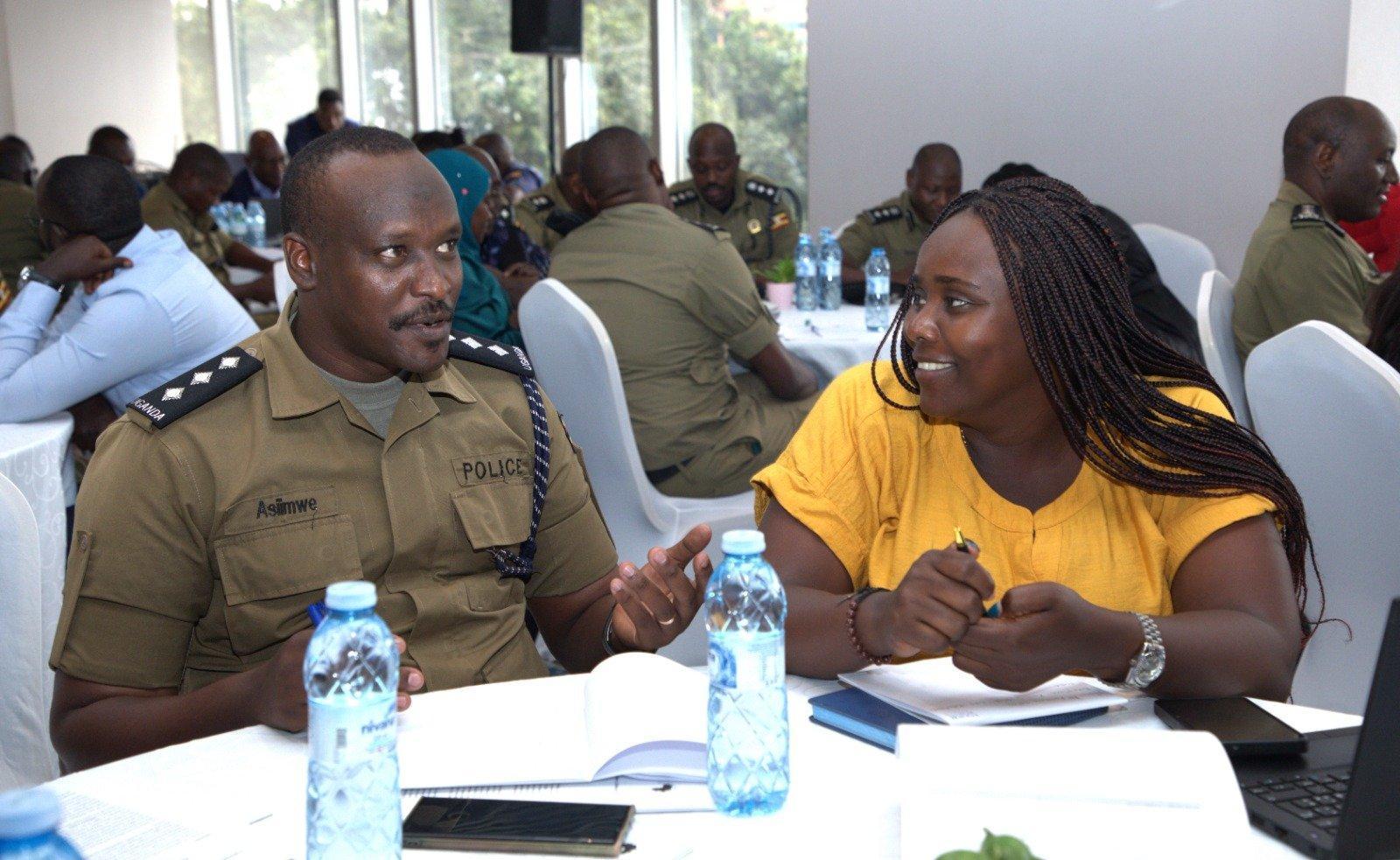Africa-Press – Uganda. In a significant step towards reinforcing democratic norms and media safety, a two-day workshop convened in Kampala brought together journalists, civil society actors, and members of the Uganda Police Force to foster collaboration on freedom of expression, public order, and journalist protection.
The training, held on April 30, 2025, was organised by the United Nations Educational, Scientific and Cultural Organization (UNESCO), in partnership with the Africa Freedom of Information Centre (AFIC) and the United Nations in Uganda.
It was strategically timed as the country gears up for the 2026 general elections, a period historically marked by strained relations between security agencies and the press.
Designed to promote dialogue and shared understanding, the workshop employed scenario-based learning, interactive sessions, and practical simulations.
Organisers emphasised the importance of forging long-term mechanisms to ease tensions between the media and law enforcement, and to reaffirm the role of both institutions in serving the public.
“This marks a crucial starting point for fostering a harmonious relationship between law enforcement and the media,” said Charles Kataratambi, senior commissioner of Police and Director of Human Rights and Legal Affairs.
“Journalists and police officers are strategic allies. But with the rise of citizen journalism, professionalism has sometimes been undermined, fuelling mistrust. This training is vital to rebuilding that trust.”
Participants discussed the international legal standards underpinning press freedom, explored professional boundaries and ethical challenges, and reflected on the role of law enforcement in protecting—not hindering—media work.
UN Resident Coordinator Leonard Zulu, citing the UN Secretary-General António Guterres’ message for World Press Freedom Day 2025, underscored the stakes: “Free and independent journalism is an essential public good. It’s the backbone of accountability, justice, equality, and human rights. When journalists are unable to work, we all lose.”
Louise Haxthausen, UNESCO’s Regional Director for Eastern Africa, echoed this sentiment.
“The safety of journalists and freedom of expression are fundamental to a functioning democracy. This training underscores UNESCO’s commitment to building bridges between law enforcement and the media.”
Both police officers and journalists welcomed the open format of the workshop, which allowed for candid exchanges and real-world application of principles.
“It was eye-opening to interact directly with police officers—not just in the sessions, but in shared accommodation and meals,” said one journalist.
“We realised how much our missions overlap in terms of public service.”
A police participant remarked, “We have often viewed the media with suspicion, but this training helped us see the value of mutual respect. We both want justice and order—we just approach it from different angles.”
Civil society representatives praised the initiative for addressing issues often swept under the rug during electoral periods, including police hostility toward journalists, lack of accountability in abuse cases, and media misinformation.
The workshop concluded with concrete recommendations, including strengthening institutional communication between police and media houses, ensuring independent investigations into crimes against journalists, providing legal redress through impartial oversight bodies, and committing to continued professional training on both sides.
Participants also agreed to maintain regular dialogue forums in the run-up to the elections, in hopes of reducing tensions and fostering a shared commitment to peace, safety, and transparency.
As Uganda heads toward a pivotal electoral season, the message from the workshop was clear: the safety of journalists and the integrity of law enforcement are not competing priorities—they are interdependent foundations of democracy.
For More News And Analysis About Uganda Follow Africa-Press






